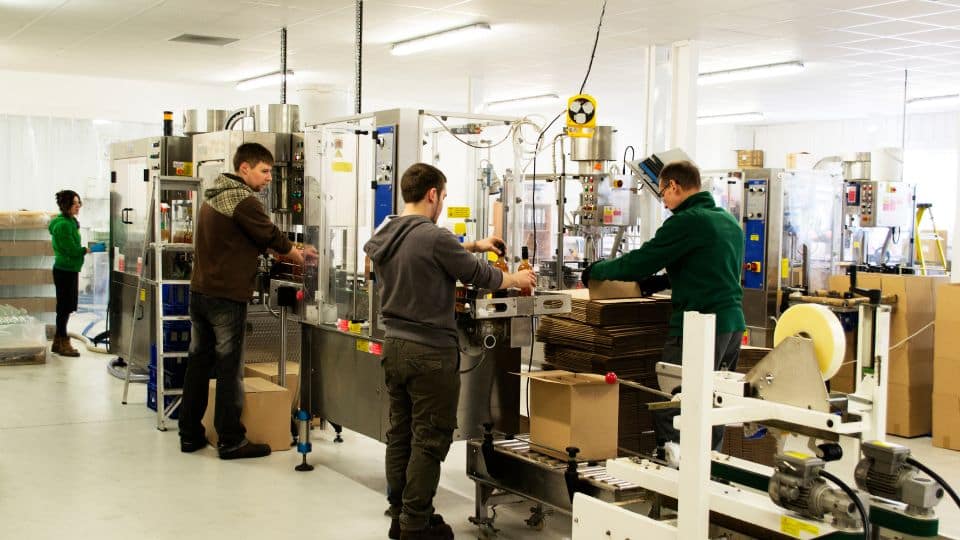In recent years, I have witnessed a growing trend of businesses moving out of China for manufacturing to other Asian countries or back to New Zealand. Over the last year, this change has accelerated. Where does this leave you as an importer or manufacturer?
I believe the following are the key points that businesses should consider when it comes to reducing their manufacturing reliance on China. Albeit, there are more than just these points.
Business Strategy and Competitiveness
In a highly competitive local and global market, businesses need to constantly seek ways to improve their business strategy in order to remain competitive.
One way to achieve this is by reducing manufacturing costs, which is becoming increasingly difficult in China due to rising labour and manufacturing costs. Many businesses are moving their manufacturing operations to other Asian countries, where labour and production costs are lower, allowing them to stay competitive in the market.
But this is a repeating cycle. Do you recall the cheap ‘plastic’ stuff that was pushed out in volume from Japan a few decades ago? Then their market matured, and both quality and pricing increased and China gradually took over. So what is the new China for your product? Thailand? Romania? Does your product support a low-cost, less sophisticated manufacturing base?
Related Article: Developing a Business Strategy
Opportunities for Local Businesses in New Zealand
This shift away from manufacturing in China presents opportunities for local businesses in New Zealand. By partly or completely manufacturing your products locally you can take advantage of what New Zealand has to offer: faster supply chains, improved ethical standards; reduced reliance on vulnerable shipping; reduced stock holding and improved cash flow (critical for growth); and lastly to better leverage off the strong NZ brand.
Related Article: SME's Simpple Guide to Cashflow 101
Improved Ethical Standards
Conscious consumerism is a relatively new phrase and is alive and well. Many consumers and businesses are concerned about the ethical implications of manufacturing in China (and many other countries as well), which include labour practices and environmental impacts.
By improving your ethical standards, businesses can effectively differentiate themselves from their competitors and potentially gain a competitive advantage.
Reduced Geopolitical Risk
Manufacturing abroad, and especially in China, will expose your business to increasing geopolitical risks, such as trade disputes and political instability. A recommended read on this is Ray Dalio’s ‘Principles for Dealing with the Changing World Order’.
By diversifying your manufacturing operations and reducing your reliance on a single country location, you will significantly reduce your exposure to such risks. This is especially important for businesses that rely heavily on imports from China, where political and economic tensions are on the increase.
Improved Product Quality
This point is actually a little tricky as quality may, or may not be an issue for you. It stands to reason that by manufacturing products in countries with better regulatory standards, and a generally more sophisticated manufacturing ethos, businesses can improve the quality of their products.
But, and there is always a but, I have learnt the hard way on this one. If you operate as an ‘importer’, you are by default reliant on mass volume manufacturing. This is great for capturing the economies of scale benefit, but not great for any Kaizen/JIT practices. There is nothing worse than having a few months of stock of sub-optimal products.
My Conclusion
The trend of businesses moving out of China for manufacturing presents opportunities for local businesses in New Zealand. By manufacturing products locally or in other Asian countries (depending on your product type), businesses can improve their competitiveness, reduce their reliance on a location that is becoming increasingly risky, and improve their ethical standards.
I recommend that businesses carefully consider both their China and overall offshore manufacturing so as to see if they could take advantage of these opportunities and potentially gain a competitive advantage in the market.
Thank you for reading my newsletter. If you have any questions or comments, please don't hesitate to contact me.

Sean Foster
Business Advisor - Coach
PS. If you need more than DIY on your plan, then schedule a meeting here to explore working with me or our BIG group.
PPS. Some of you may believe the horse has already bolted. Already 1 month into the new year, is it too late to do this? I guess you know our view on this answer 🐴.








Recent Comments